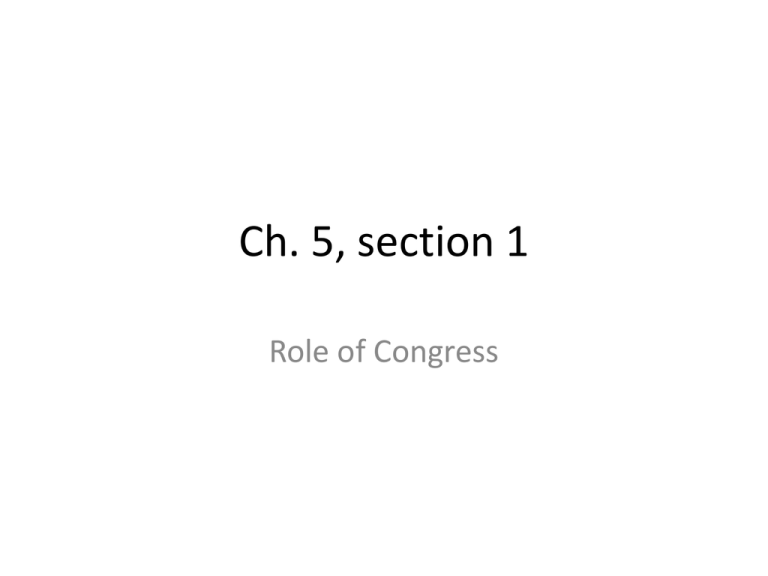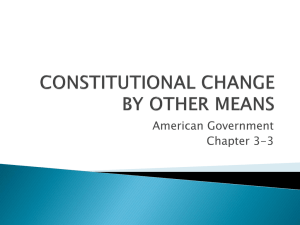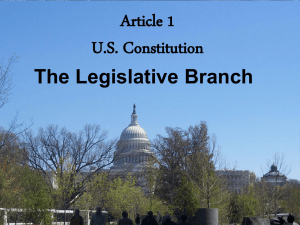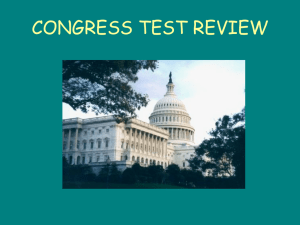Ch. 5 notes
advertisement

Ch. 5, section 1 Role of Congress Essential Questions • What influences how members of Congress vote? • What purpose do congressional investigations serve? • Why is it important for members of Congress to serve their constituents? Influences on the voting decisions of members of Congress: • • • • personal beliefs constituents’ interests interest groups’ concerns political party loyalty Purpose of congressional investigations: • to examine the performance and operations of government agencies • to look into scandals and abuses in federal agencies Reasons members of Congress should serve their constituents: • to detect changes in constituents’ attitudes or problems with federal programs • to represent their constituents’ interests Ch. 5, Section 2 Houses and Members of Congress Essential Questions: • How do the houses of Congress differ in their structure and membership? • How are congressional districts drawn? • What is the typical profile of a U.S. congressmember? Differences in the structure and membership of Congress: • House of Representatives - 435 members - two-year term - representation determined by population - members required to be at least 25 years old, U.S. citizens for at least seven years, and legal residents of the states they represent Senate • 100 members, or two members from each state • six-year term • members required to be at least 30 years old, U.S. citizens for at least nine years, and legal residents of the states they represent Houses and Members of Congress • Congressional districts are drawn according to the population distribution as indicated by each official census every 10 years Typical profile of U.S. congressmember: • has at least a college degree • is a white male over 40 years old Section 3 Powers of Congress • Essential Questions - To what main areas of governing do Congress’s expressed powers apply? - What special powers does Congress hold? - What are the implied powers of Congress? - What constitutional limits exist on congressional powers? Congress’s expressed powers: • • • • • government finance regulation of commerce national defense law enforcement national sovereignty Congress’s special powers: • impeach federal officers • approve treaties and presidential appointments • decide elections under certain circumstances Congress’s implied powers: • As provided by the Elastic Clause, Congress can expand its expressed powers in order to respond to situations unforeseen by the framers of the Constitution Limits on congressional powers: • judicial review • the Tenth Amendment • Article 1, section 9 of the Constitution Chapter Wrap-up 1. What role do constituents, interest groups, and political parties play in the policies made by Congress? 2. What are Congress’s three main roles? 3. How are congressional districts for the House of Representatives determined? Chapter Wrap-up cont. 4. What qualifications does the Constitution set for senators and representatives? 5. What types of powers does Congress hold? 6. What powers are denied to Congress by the Constitution? Activity • The Constitution establishes few qualifications for members of Congress. Should there be additional qualifications? Write a paragraph that supports your opinion on this issue









